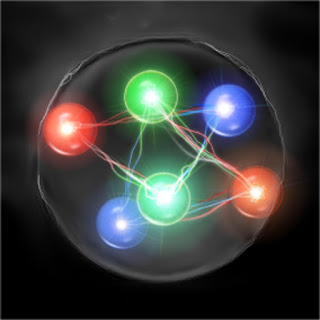Contingence, creation and redemption

This post concludes a series looking at key concepts in The Christian Frame of Mind by Thomas F. Torrance (TFT). To read other posts in the series, click a number: 1 , 2 , 3 , 4 . Jesus Christ (fully God, fully human) (public domain via Wikimedia Commons) This series has examined a fundamental precept of TFT's theology---one derived from the Bible, affirmed by the Nicene faith of the early church Fathers, and confirmed in the natural sciences (quantum physics in particular). The precept is this: The order in the universe is contingent order, meaning that it has an intelligibility grounded in a source beyond itself. As scripture shows, and the early church taught, that Source is the Word ( Logos ) of God, who is both Creator and Sustainer of the universe. The Creator become Redeemer Scripture also reveals that to restore the order lost in the fall, the Creator and Sustainer of the universe became its Redeemer. The Word of God acco...


